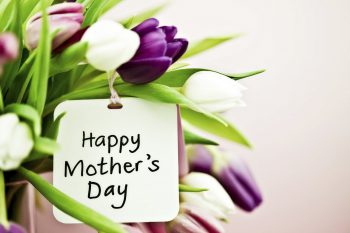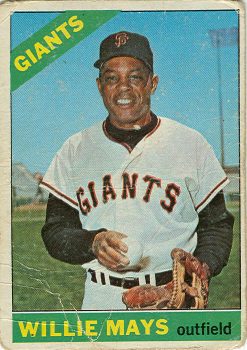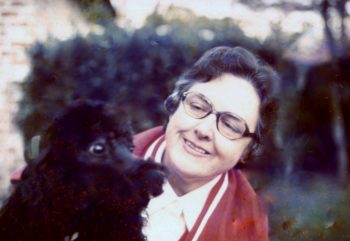 I’m a sports fan. I Grew up in the 1960’s watching sports-all sports, but mostly baseball, basketball, and football. In baseball, I was a San Francisco Giants fan back when they had Willie Mays, Willie McCovey, and Juan Marichal. Willie Mays was my favorite; he was a great hitter and could run and catch balls over his shoulder long before Odell Beckham Jr. was even born. He was certainly one of the best players ever. He also did all of this growing up as a black kid in a segregated America. I love seeing someone overcoming such adversities – really something to admire.
I’m a sports fan. I Grew up in the 1960’s watching sports-all sports, but mostly baseball, basketball, and football. In baseball, I was a San Francisco Giants fan back when they had Willie Mays, Willie McCovey, and Juan Marichal. Willie Mays was my favorite; he was a great hitter and could run and catch balls over his shoulder long before Odell Beckham Jr. was even born. He was certainly one of the best players ever. He also did all of this growing up as a black kid in a segregated America. I love seeing someone overcoming such adversities – really something to admire.
Now you may be wondering, ‘What does Willie Mays and my mom have in common?’ Fortunately for my mom (and Willie too) it’s not because they look so much alike. There’s something about the combination of high heels, lipstick, gravity and body mechanics that would have making a great baseball catch impossible. It also conjures up a very bad visual image.
What I think moms and Willie do have in common is loyalty. To me, Willie Mays represents a time when teams were loyal to players and players were loyal to their team. Most players back then spent almost there entire careers with one team. It was easier to be a fan of a team back then and to continue to root for the same players. Nowadays, players frequently quit a team looking for more money and teams are quick to jettison players. Teams often can’t manage to even stay in the same city anymore. It’s frustrating seeing some of my favorite players on a rival team, and I have less enthusiasm for my own team for trading a favorite player.
What created team loyalty back then? I think it was a group of people working together for a common goal. It was an attitude of cohesiveness, rather than a ‘me first attitude’. I think the ‘me first’ attitude really started to take off in the 1970’s and the advent of free agency. It also seems like the modern day owner, unlike their predecessors, are more interested in the bottom line rather than the pleasure of having a winning team.
The core of team loyalty and attitude of cohesiveness for the family is generally the mother. The mom is usually the ‘glue’ that holds the family together, and I think we all can be grateful for that.
In recent blogs I discussed the advantages of strong family, faith, and social relationships on our health. A brief recap of some of those advantages includes:
- Years of increased life expectancy
- Lower rates of smoking, alcohol, drug abuse, and teenage pregnancy
- Improved quality of life in cancer patients
- Decreased coronary disease
- Lower blood pressure
- Less depression and suicide
- Better coping skills
- More positive attitudes
- Less domestic violence
- Less anxiety
- Less infections
- Lower pain levels
We as a society can thank moms for all of these things. Certainly there are plenty of exceptions, but generally moms have the strongest ties to kids and other generations. Moms are also a role model for other social relationships, and encourage us in personal interactions.
Mothers are quite often the first person to introduce faith to their children. It may be another person or mentor who finally lead us to a belief in God, but it’s often mom who initiates the thought. In some sense, our parents (often the mom) planted the seeds of faith, where others may have contributed to its growing. Judeo-Christian principals (such as equality, freedom, and justice) were fundamental to the formation of our country and society.
Through promotion of strong families, faith, and relationships, Moms have been crucial in creating a healthy society and we should be grateful for that.
Now some may counter with examples of imperfect mothers (sometimes their own mom) who have harmed our society and hopefully this is not you. But to that point I’d like to say:
- Mothers are not perfect, none of us are
- Being a mom is a very difficult job
- We should try and support and encourage as much as possible
- Strive for a culture that brings out the best in motherhood, and forgives the flawed
So I wish all the moms out there the best. May God bless you with comfort, close family, and the best of friends.
To those of you whose mother is no longer with us: I am in your boat. It does help to rely on the Lord, and look at the situation from His perspective. I would like to refer you to Chapter 16 of Live, Love, and Let Go: A Doctor’s insightful Approach to Living and Dying, by Dr. James K. Abshire. This is not just a shameless plug…all royalties go directly to charity. Also, I have seen many people who have truly benefitted from reading this book. Some of these benefits include less pain and anxiety, while attitudes are calmer and more gracious.
Once again, have a wonderful Mother’s day.
God Bless,
James
Next time: Self-talk
 Shannen says
Shannen says
May 7, 2016 at 11:48 pmThis is a brilliant blog. As always, things you write make you think.
Our Mothers who are no longer here, I pray they feel our love always, especially on Mothers Day.
Awesome book you wrote, hit home much more than I could have imagined. Thank you for your insight.
 Dr. James Abshire says
Dr. James Abshire says
May 28, 2016 at 2:10 pmThank you for you kind words.-J.A.
 Lucinda says
Lucinda says
May 8, 2016 at 11:28 amGreat tribute, little Bro!
 Dr. James Abshire says
Dr. James Abshire says
September 2, 2016 at 11:39 pm<3 Thanks, Sis! :)
 fut 17 coins says
fut 17 coins says
August 24, 2016 at 8:28 amMany thanks extremely beneficial. Will certainly share website with my good friends
 Dr. James Abshire says
Dr. James Abshire says
September 2, 2016 at 11:53 pmSorry for the delay in my reply to your comment.
Thank you for sharing my website with your friends.
Receiving positive comments are what makes writing this blog enjoyable.
The goal is to make a positive impact on those who are struggling with a multitude of life’s issues.
– James